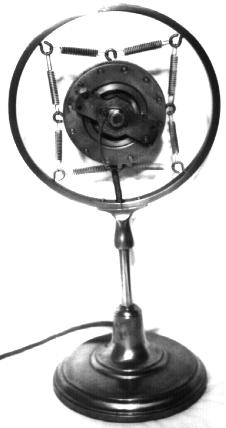
Who invented radio drama? 
That's a difficult question, with no real answer. The idea of presenting dramatized stories on radio goes back to the very birth of the medium, with many claimants to the title of "first radio drama." It's apparent that there was considerable experimentation going on with the concept of audio drama during 1921 and 1922 at a number of different stations, notably KDKA and the newly-established WLW.
But if the question is "What was the first regularly-scheduled series of radio dramas," there's an easy answer.
That answer is spelled out in fascinating detail in the November 1923 issue of "Radio Broadcast" magazine -- and seems to establish the true birthplace of radio drama as Schenectady, New York -- home of the General Electric Company's station WGY.
The aritcle by C. H. Huntley, on pages 24-26, states that before the first production of the WGY Players in September 1922, prior attempts at drama by other stations were limited to occasional scenes, none of which had been particularly successful. Specifically mentioned are the experiments with "The Perfect Fool" and another stage show called "Lightning." The articles states that these shows were presented as performed from the stage of a theatre in Chicago. This seems to differ from the generally-accepted story of "Perfect Fool" being broadcast from the WJZ studio in Newark. "Perfect Fool" was running on Broadway in 1921. Such runs were generally followed by a road show, however, and its possible that a later Chicago performance might have been aired. More research on this point is clearly needed.
An actor by the name of Edward H. Smith is credited with first suggesting the idea of real radio drama. He was associated with "The Masque," a theatre group in Troy, NY, and in the summer of 1922, approached WGY Program Director Kolin Hager with the idea of doing radio adaptations of some popular plays.
Hager liked the idea, and agreed -- on the provision that none of the plays run more than forty minutes. He was concerned that the attention span of the audience might not be up to the challenge of a longer production, so new was the idea.
Smith immediately went to work on an adaptation of a play by Eugene Walter, entitled "The Wolf." This three act drama was cut down to exactly forty minutes by focusing on the action of the second act, adding just enough of the material from the first and third acts to make the story comprehensible. In agreeing to allow the adaptation, the playwright insisted that the presentation be given with a full cast, and Smith selected several of his colleagues from "The Masque" to play the roles: Viola Karwowska, Frank Finch, James S. B. Mullarkey, Henry Miller, and Smith himself.
The play was aired following several rehearsals in September 1922, and the station received more than two thousand letters from within a five-hundred mile radius. One letter from Pittsfield, Massachusetts claimed that the screams of the character "Hilda" were so real, that a policeman overhearing the program thru a window burst into the writer's home to stop the "assault."
The success of the first production caused Hager to commission a series of plays, to be offered thru the fall, winter and spring of 1922-23. By the end of the season, a total of forty-three plays were presented, all featuring the same group of actors. All were adapted from well-known existing works, and included such titles as "The Garden of Allah," The Sign of the Cross," "The Green Goddess," and "Madame X." All of the plays were edited to fit into the forty-minute time alloted.
Photos accompanying this article include one showing the actors gathered around two ring-mounted carbon microphones of the Western Electric type, although the picture is too blurry to distinguish the exact model. Between the mikes and to the rear is a table covered with sound effects equipment and a candlestick telephone, which may be in use as a microphone or as a piece of sound effects apparatus. A common canvas-type stage wind machine stands next to the table. The actors are holding scripts, and Smith is shown assisting Frank Oliver in the production of a rain sound effect.
The WGY Players remained a fixture on the station thru the rest of the 20s -- and in fact were responsible for the earliest known attempt at television drama in the US -- a production of "The Queen's Messenger" presented with the Baird/Jenkins mechaincal TV process in 1928.
While there may well have been earlier experiments at other stations in 1921-22, I think it's safe to say based on the evidence that this WGY series was the first regular dramatic series ever heard on American radio. And I would suggest that Edward Smith and Kolin Hager -- and particularly Smith -- deserve official recognition as having been most responsible for the creation of the form.
Text Copyright (c) 1998 by Elizabeth McLeod